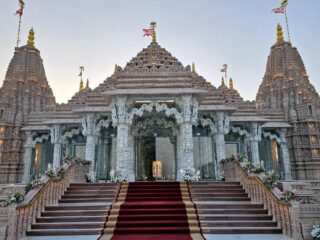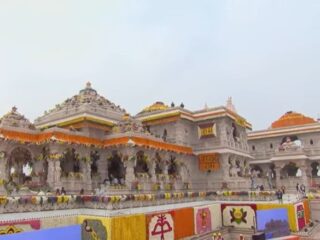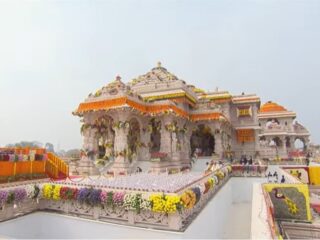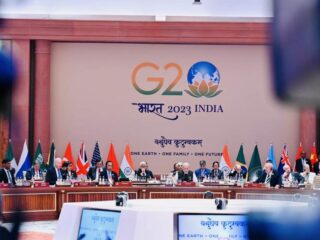Irfan Engineer
(Secular Perspective, March 1-15, 2015)
Controversy was generated over the Republic Day advertisement of the Union Government, wherein facsimile of the Preamble of the Constitution was shown. The words “Socialist” and “Secular” were missing therein. BJP leader’s defence was that it was the facsimile of the original Constitution and therein the words “Socialist” and “Secular” were not mentioned. It is a fact that the words “Socialist” and “Secular” were added in the year 1976 by virtue of 42nd amendment of the Constitution. However, it will always remain a mystery as to whether the facsimile of the original Constitution without the words “Socialist” and “Secular” was chosen because it better suited the ideology of the ruling party or it was inadvertent omission. Though the former is more likely to be the case as the ruling party is uncomfortable with both the world views and have not only pilloried and mocked at these Constitutional values. When the PM Modi presented a copy of Gita to the Japanese Emperor, he mocked the secularists saying they could kick up a storm and trigger TV debates.
The BJP Govts in Gujarat, MP, Rajasthan and Haryana are introducing Hindu religious texts in schools and making Saraswati Vandana and Surya Namaskar – Hindu rituals – compulsory in schools even though they are contrary to Art.28 and 29 of the Constitution. Hindu Nationalist Organizations are enforcing upper caste traditions, with the BJP regimes looking the other way. For example, vandalizing arts, literature, films, thoughts, ideas, views, expressions, representations etc. disapproved by them; coercing sections of minorities to convert to Hindu religion; forcibly preventing conversions from Hindu communities; using coercive violence against festivals, celebrations and occasions like Valentine Day; propagating hate against minorities, causing and supporting ghettoization process; enforcing dietary habits of upper caste by forcibly preventing transportation of cattle, taking illegal possession of cattle forcibly and picketing slaughter houses; forcing marital alliances and choice of friends dictated by Hindu social order; etc. The HNOs enforce communal boundaries sustained on misrepresentations and hate propaganda against non-Hindus. This is possible only when young people are deterred from freely choosing their friends and exercising matrimonial preferences and made to follow certain culture through education, media, institutions like Khap Panchayats and political fronts of HNOs. All this is in violation of the spirit of secularism. BJP has seldom made any bones about being opposed to secularism, which them means affirmative action for minorities even when it is well deserved; giving minorities their cultural space and taking care of their security.
BJP led Govt. has opposed any affirmative action in favour of non-dominant sections of the society which were traditionally excluded by the Hindu social order of caste based hierarchies. The inequalities resulting out of feudal caste based and gender based order are further sought to be aggravated using free market principle and letting market govern distribution of resources. The beneficiaries of market driven distribution of resources are of course those who control and dominate the markets and are capable of using unregulated or little regulated markets for their advantage. The ‘make in India’ campaign and ‘ease of doing business’, single window clearance, amendments to labour laws to ensure more liberal hire and fire regime, more business friendly and ‘development’ friendly environmental regulation regime ensure liberal investment regime to enable large business corporations to do exploit labour and grab land of peasants using coercive instruments at cheaper rate using amended land acquisition regime. The BJP has therefore been opposed to socialism as well
It is a fact that the words “secular” and “socialist” were not included in the preamble in the Constitution adopted by the Constituent Assembly (CA), but after you graduate, you do not tell the world that your qualification is matriculation. Nor does one affix our photo taken when one was born on driving licence and passports. Likewise, after liberating ourselves and constituting ourselves into a democratic, socialist and secular nation, and after a bitterly fought freedom movement in which thousands sacrificed their carriers, liberties, enduring physical injuries inflicted by the colonial state and sacrificed even their lives, we cannot pull out a picture of our birth (socio-political structure in ancient period) and say we are a Hindu Rashtra with words socialist and secular missing in them. Hindu Rashtra would be anti-secular and we are witnessing the ideology being forced by the state even on unwilling, which include women, adivasis, dalits, workers and liberals within the Hindu community.
Though the words secular and socialist were added later, there was no doubt in the minds of people birthing the Constitution that they were creating a secular and socialist Constitution, even though the words were consciously not used. The word “secular” as we understand now, at the relevant time carried more of a birth mark connoting non-religious if not anti-religious phenomena. Those who parented the Constitution looked upon secularism not as irreverence towards faith or turning away from religion, but freedom to profess practice and propagate religion. Lok Nath Mishra asked how would it sound (if the word secular was used) when Art. 19 (Article 25 of the final Constitution) gave citizens right to propagate religion! In spite of strong objections from the right wing elements, the right to “propagate” religion alongside the right to “profess and practice” religion was retained in the then Art. 19.
H V Kamath wanted the preamble to begin with the words – “In the name of God, we the people of India…” A. Thanu Pillai intervened and opposed Kamath’s amendment stating it would amount to compulsion in matter of religion and would be contrary to freedom of faith. Rohini Kumar Chaudhury wanted to amend Kamath’s amendment and have the opening words as “In the name of Goddess”. Pandit Hridaynath Kunzru also opposed Kamath’s amendment on the ground that collective could not be forced on anybody and it would be contrary to the Preamble which promised freedom of thought, expression, belief, faith and worship to everyone. Kamath pressed for division and his motion was defeated 41 (Ayes) to 68 (Noes). All other variations of Kamath’s amendment like – addition of words “in the name of Parmeshwara”, “By the grace of Supreme Being” etc. met the same fate – defeat by voice votes. Brajeshwar Prasad made a strong appeal that the word “secular” should find place in the Constitution as the national leaders had laid greatest stress on it and it would “tone-up the morale of the minorities”.
Thus, even though the word “secular” was not introduced into the preamble as the word then understood was different than the way we in India used it, the right to profess, practice and propagate religion along with rejection of amendments to introduce words “In the name of God” signified the middle path that Constituent Assembly wanted to tread.
Similarly, there were amendments to introduce the words “socialist”. However socialism too then was associated with state control of all means of production and abolition of private property, which could not have been the way forward for India then. Maulana Hasrat Mohani made a strong pitch that India in the preamble should be called “Union of Indians Socialistic Republics” on the line of USSR. Shibban Lal Saksena moved the amendment which among other things constituted “Bharat into a Sovereign, Independent Democratic, Socialist Republic…” whereas Brajeshwar Prasad wanted “to constitute India into a co-operative commonwealth to establish socialist order…”. All the amendments were negative. However the Constitution has provisions for affirmative action for the women, children, Scheduled Castes, Scheduled Tribes, other socially and educationally backward classes. The Constitutional parents also thought it prudent to include Part IV on Directive Principles of State Policy in which, among many other things, the state would try to pursue the policy under which “the ownership and control of the material resources of the community are so distributed as best to subserve the common good” (Art. 39 (b)) and “the operation of the economic system does not result in the concentration of wealth and means of production to the common detriment” (Art. 39 (c)). In his address on 25th November when the Constitution was finally ready, Dr. Ambedkar described the Constitution as ‘social democracy’. He said:
“We must make our political democracy a social democracy as well. Political democracy cannot last unless there lies at the base of it social democracy.”
The CA left subsequent generations to introduce the words “socialist” and “secularism” into the Preamble of the Constitution. Dr. Ambedkar quoted Jefferson in his final adoption address to the CA:
“We may consider each generation as a distinct nation, with a right, by the will of the majority, to bind themselves, but none to bind the succeeding generation, more than the inhabitants of another country.”
Dr. Ambedkar had apprehended the contradiction of having a Constitution that propounds equality of all citizens amidst huge social inequalities. “On the 26th of January 1950, we are going to enter into a life of contradictions. In politics we will have equality and in social and economic life we will have inequality. In politics we will be recognizing the principle of one man one vote and one vote one value. In our social and economic life, we shall, by reason of our social and economic structure, continue to deny the principle of one man one value. How long shall we continue to live this life of contradictions? How long shall we continue to deny equality in our social and economic life? If we continue to deny it for long, we will do so only by putting our political democracy in peril. We must remove this contradiction at the earliest possible moment or else those who suffer from inequality will blow up the structure of political democracy which is Assembly has to laboriously built up.”
We need to remember those words of wisdom of Dr. Ambedkar. The pace at which the economic and social inequalities are increasing in India is worrisome. How much and how long the Hindutva ideology can be deployed to awe and mesmerize those experiencing further marginalization and impoverization and misled to believe that socialism and secularism are against their (Hindu) interests remains to be seen. Resounding victory of AAP in Delhi elections tells us that it won’t be for long that they could be mesmerized by talk of development which benefits a few industrialists.




